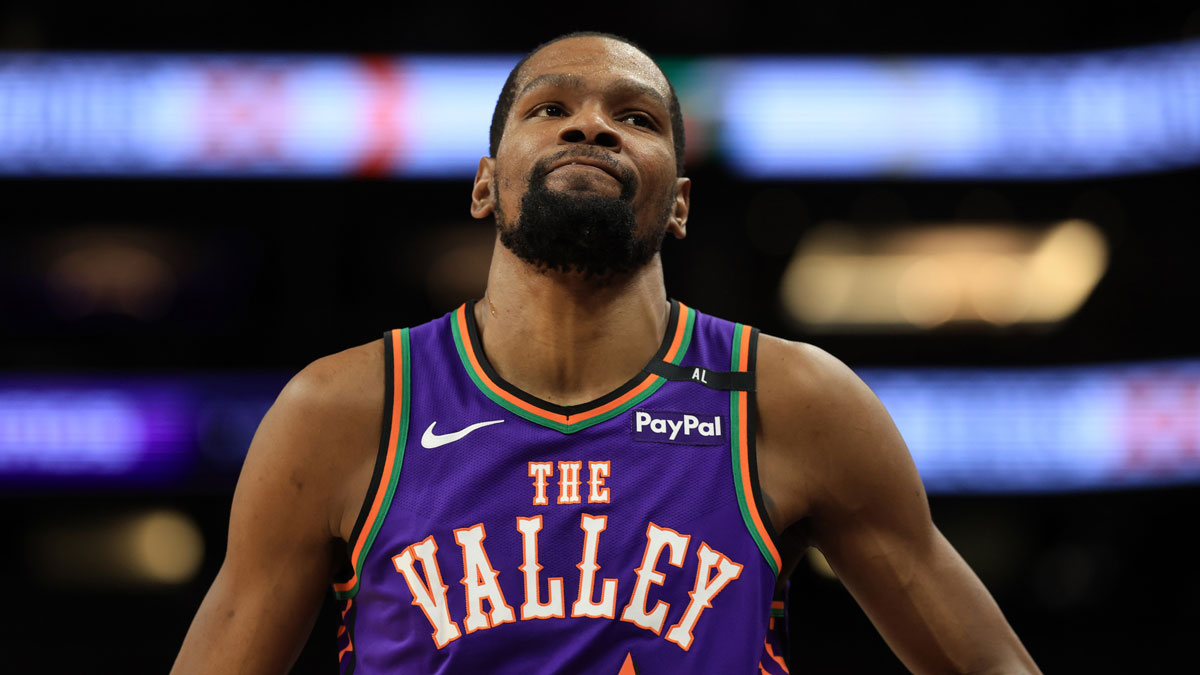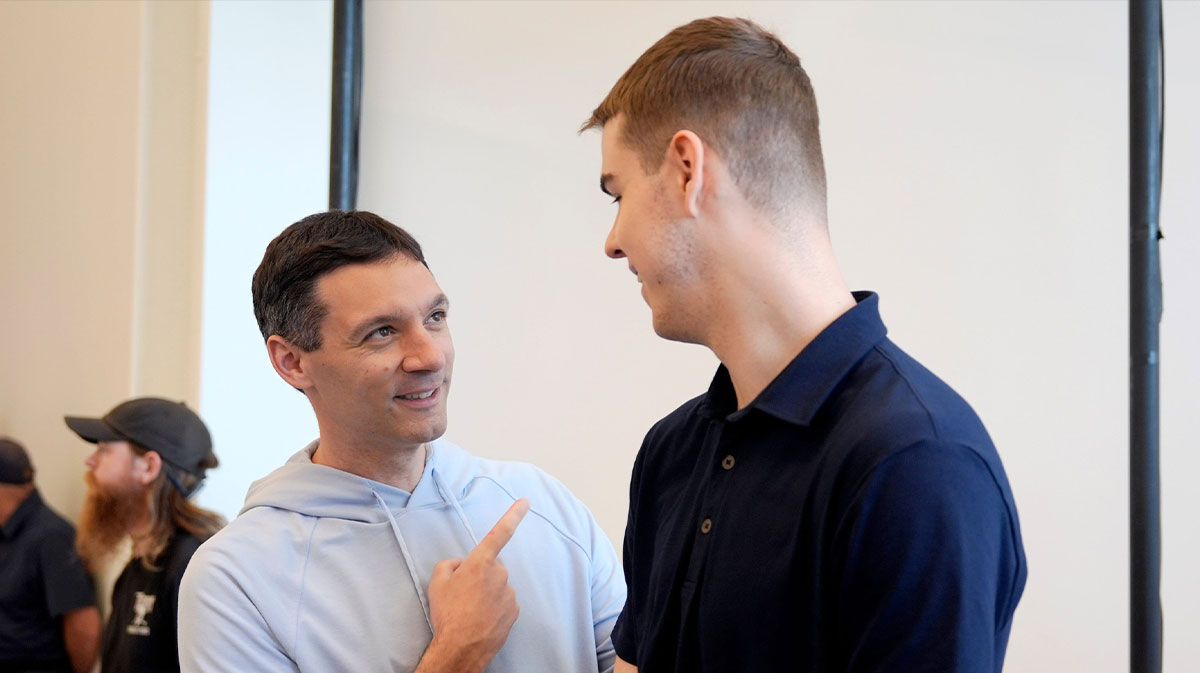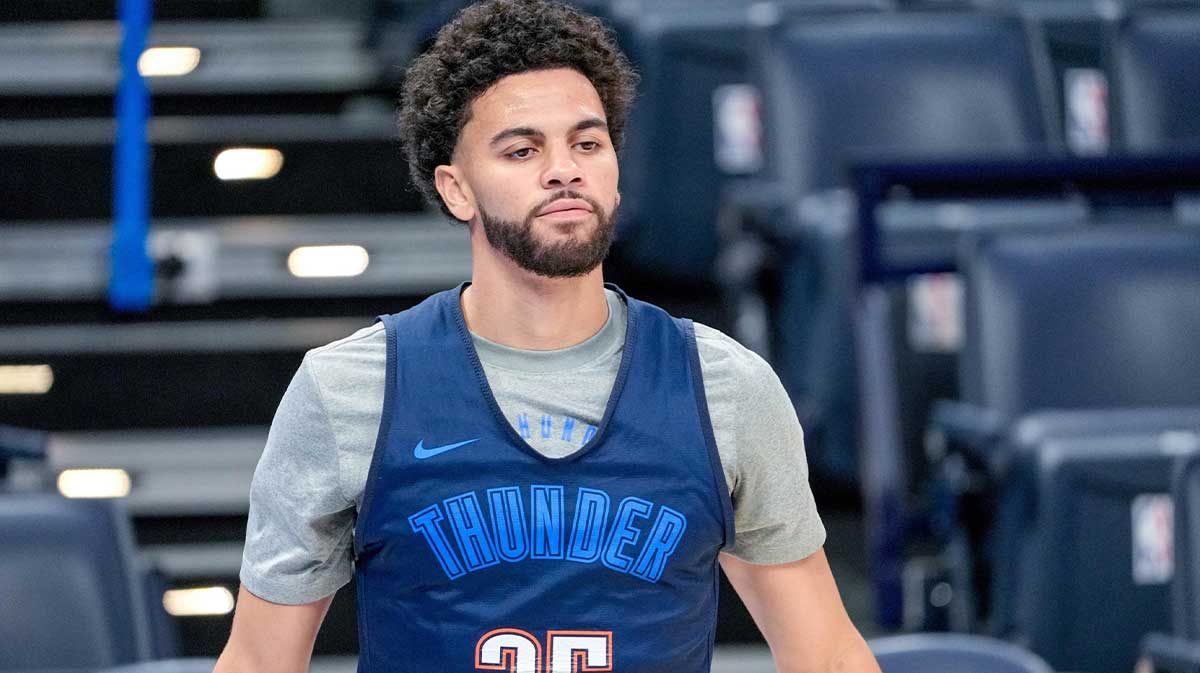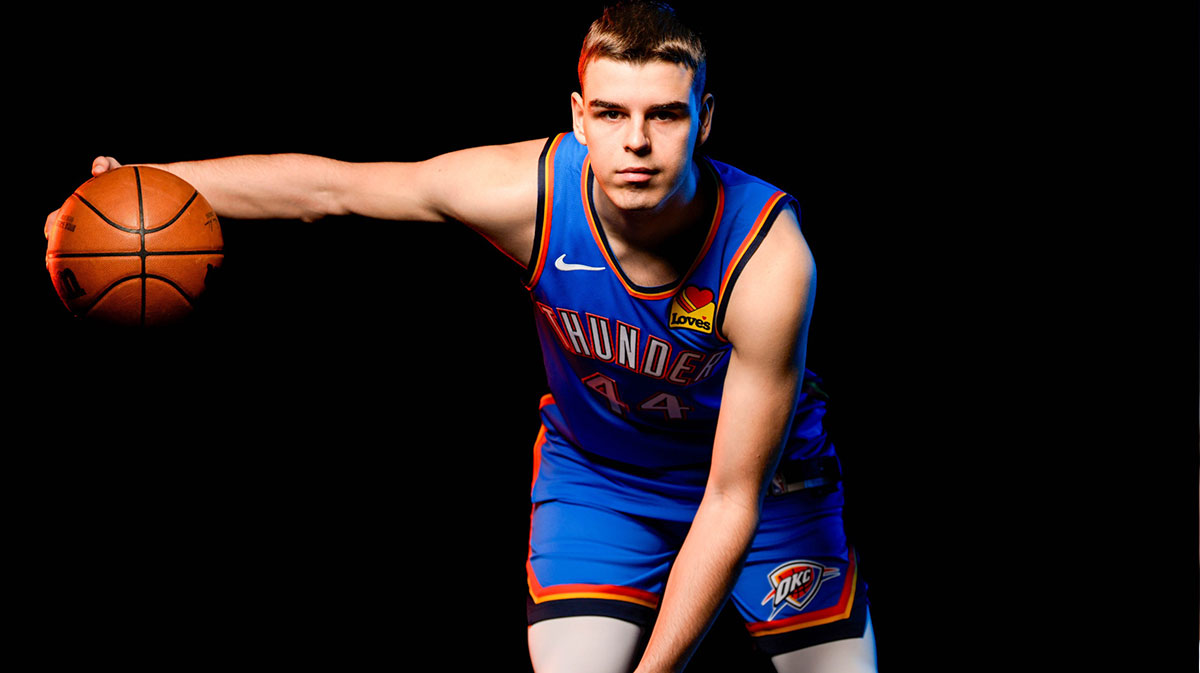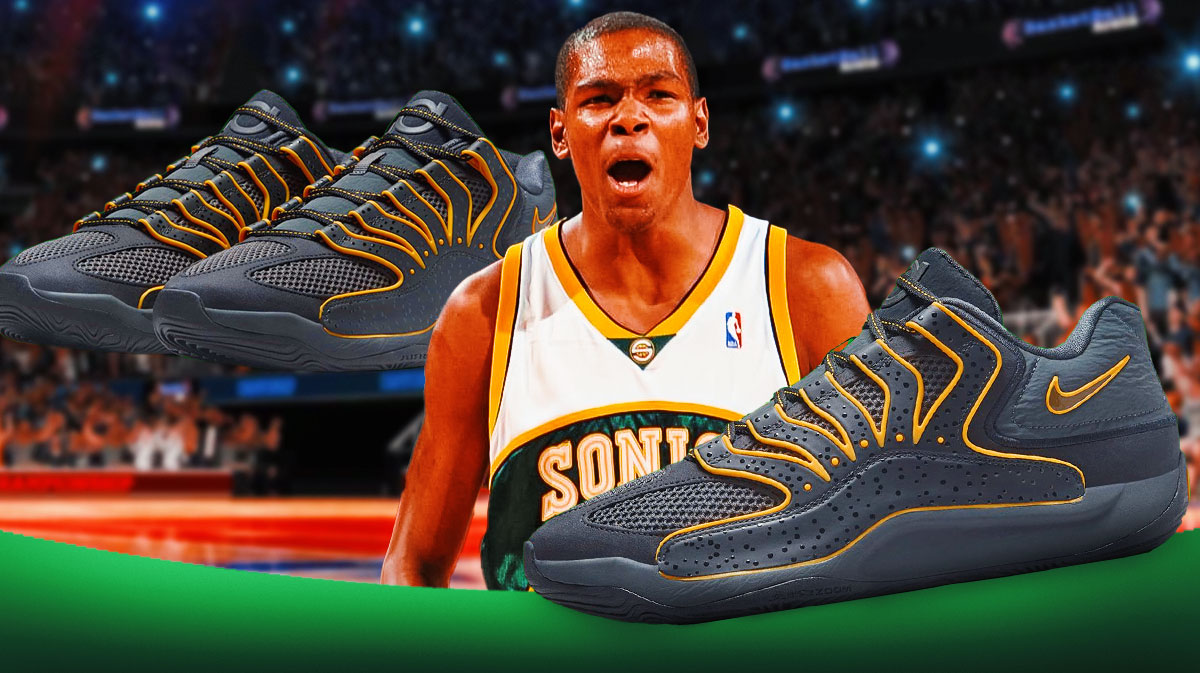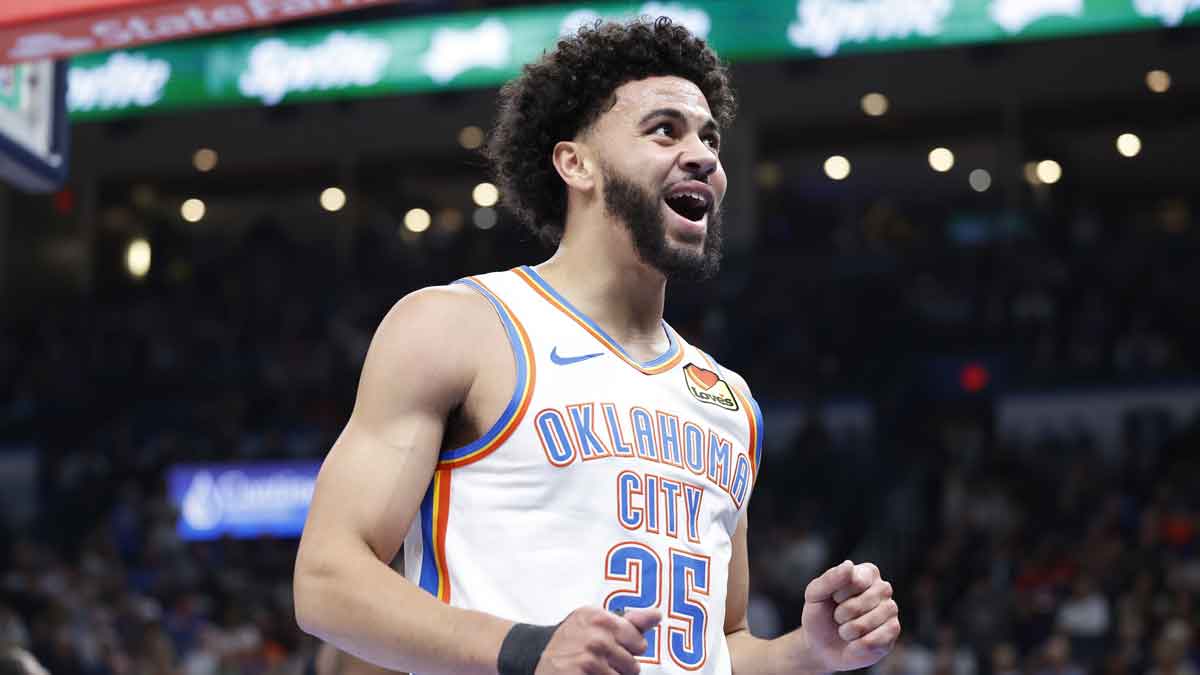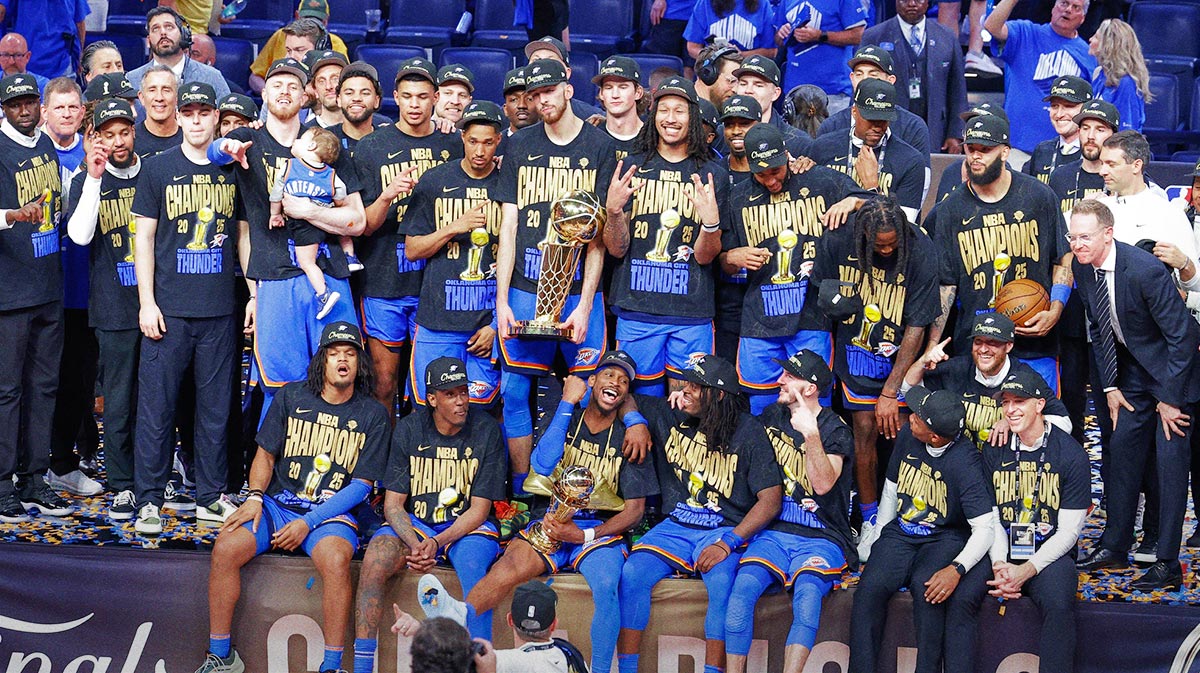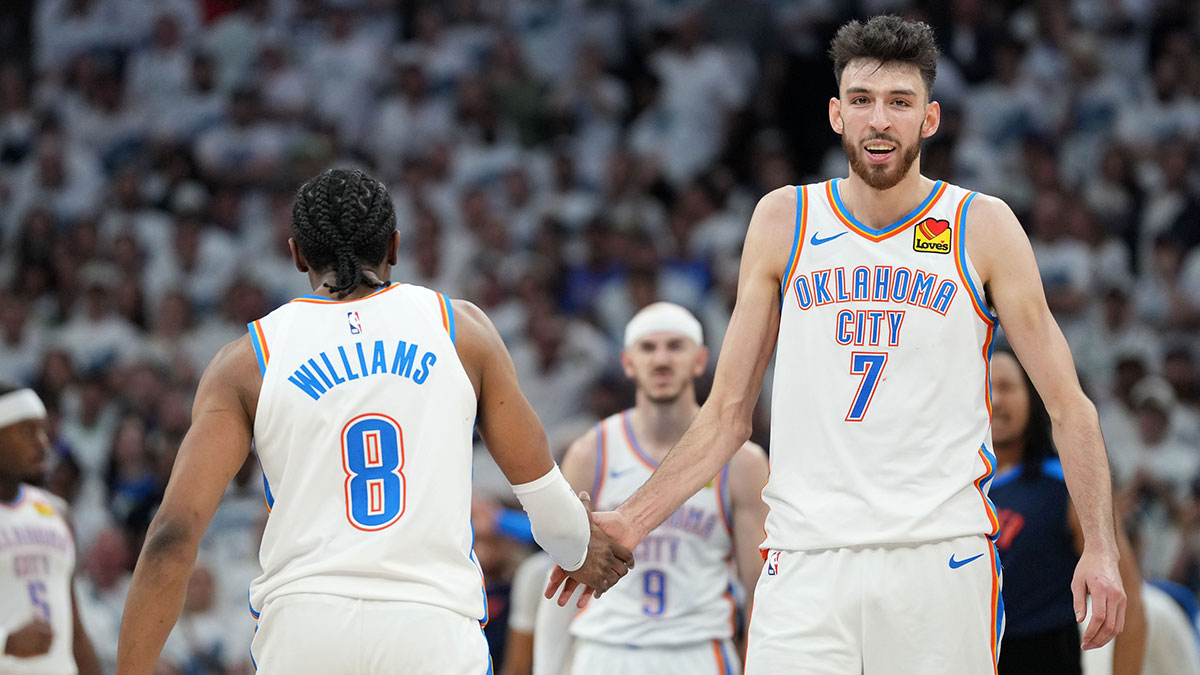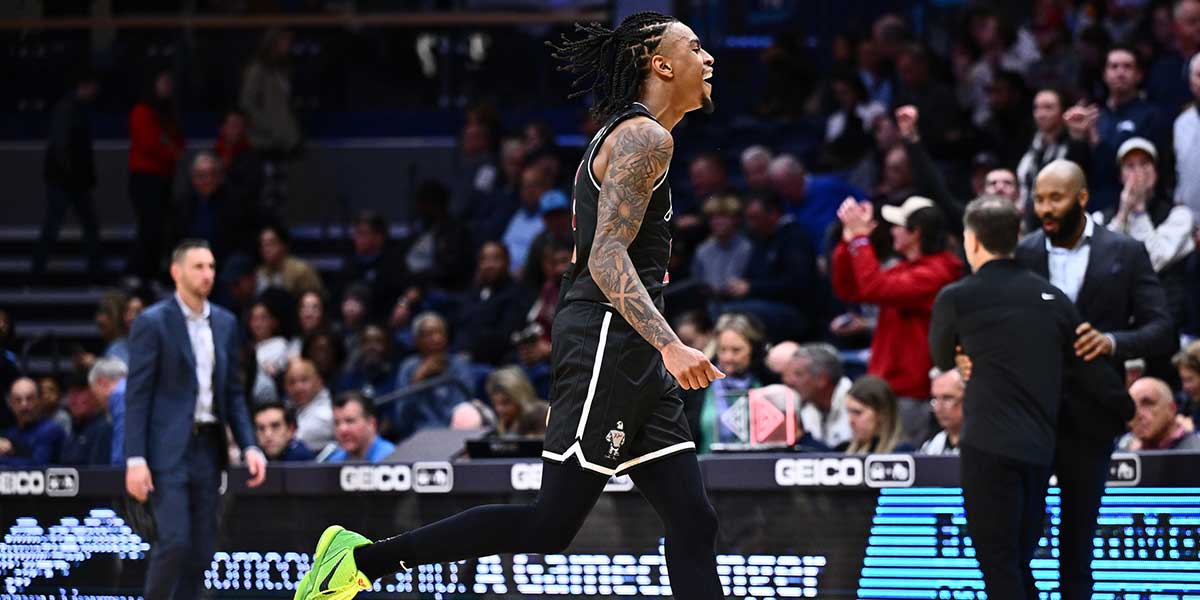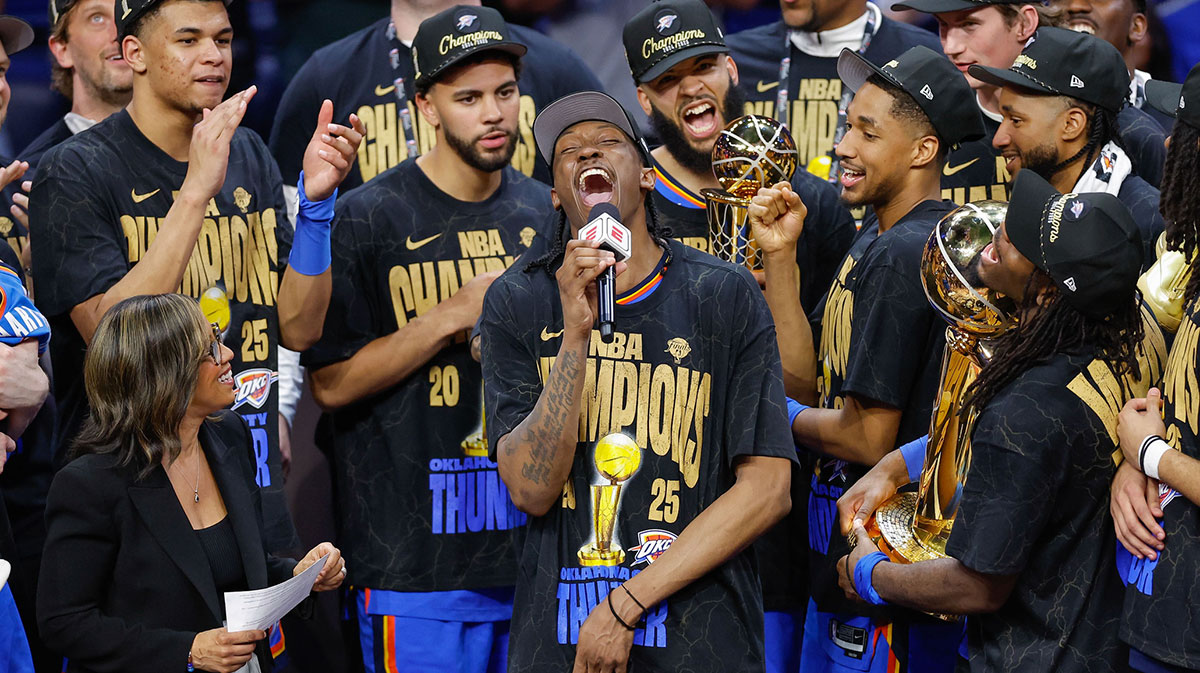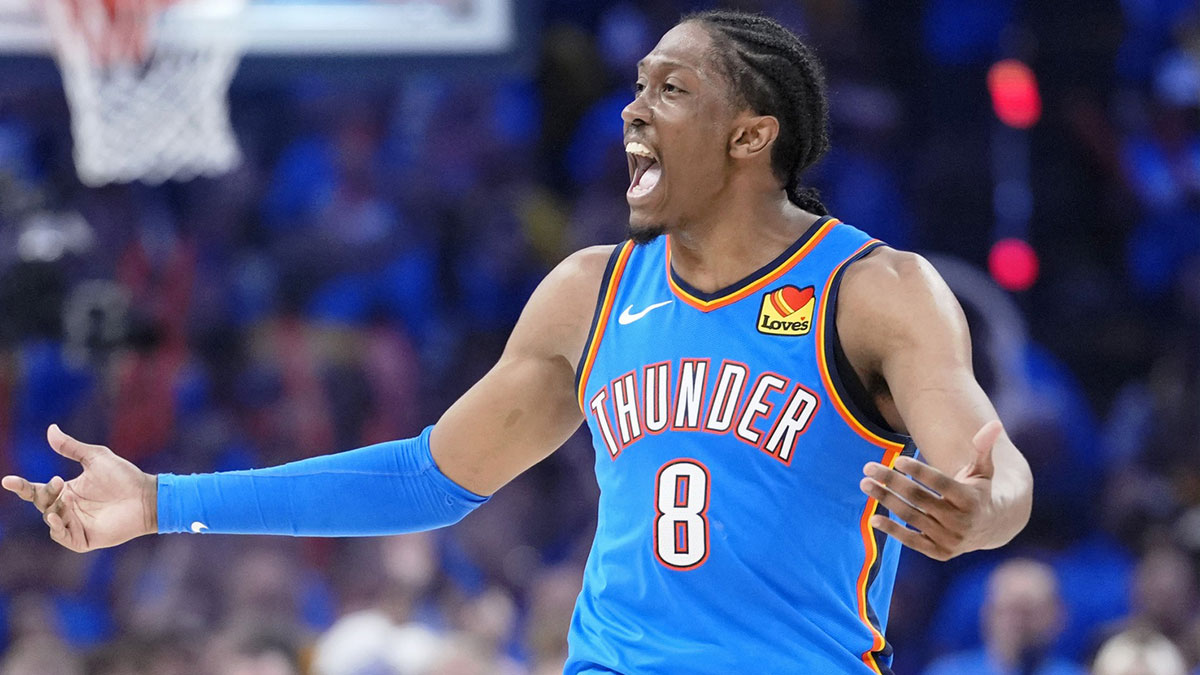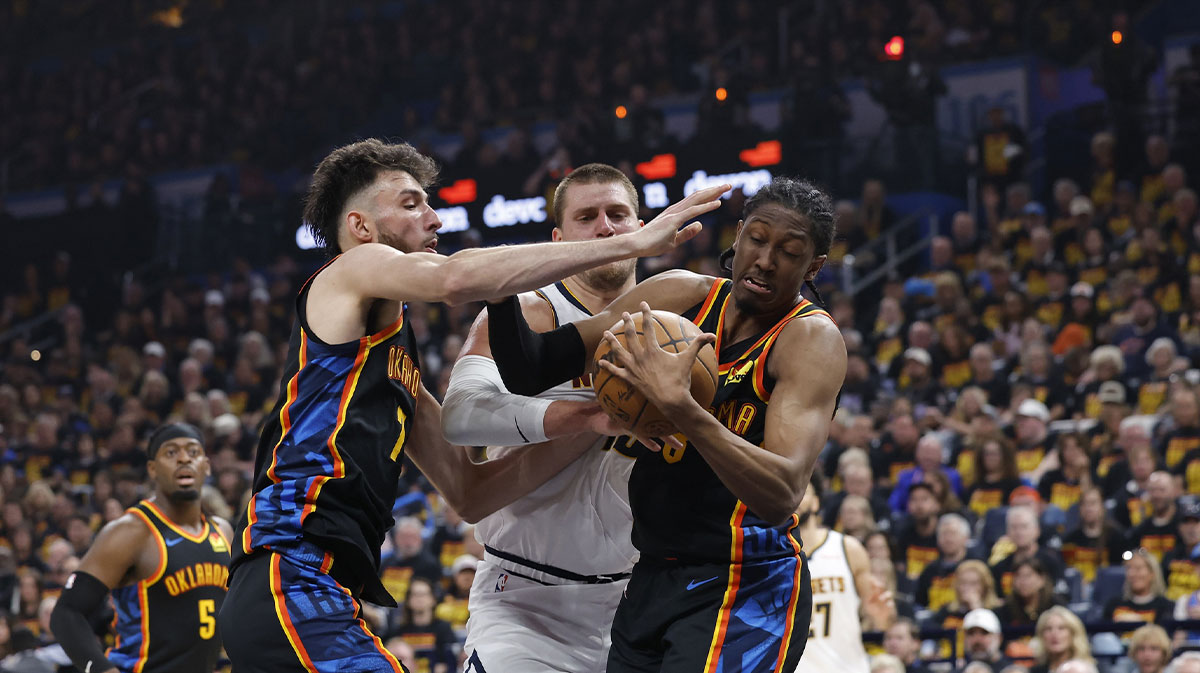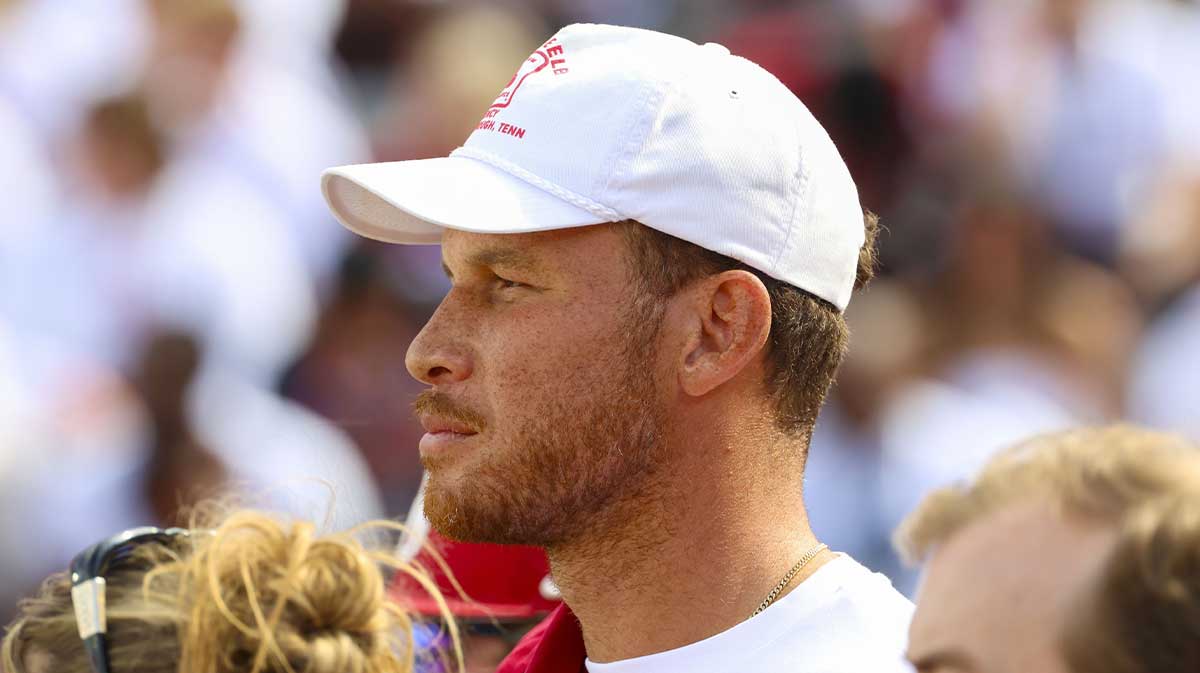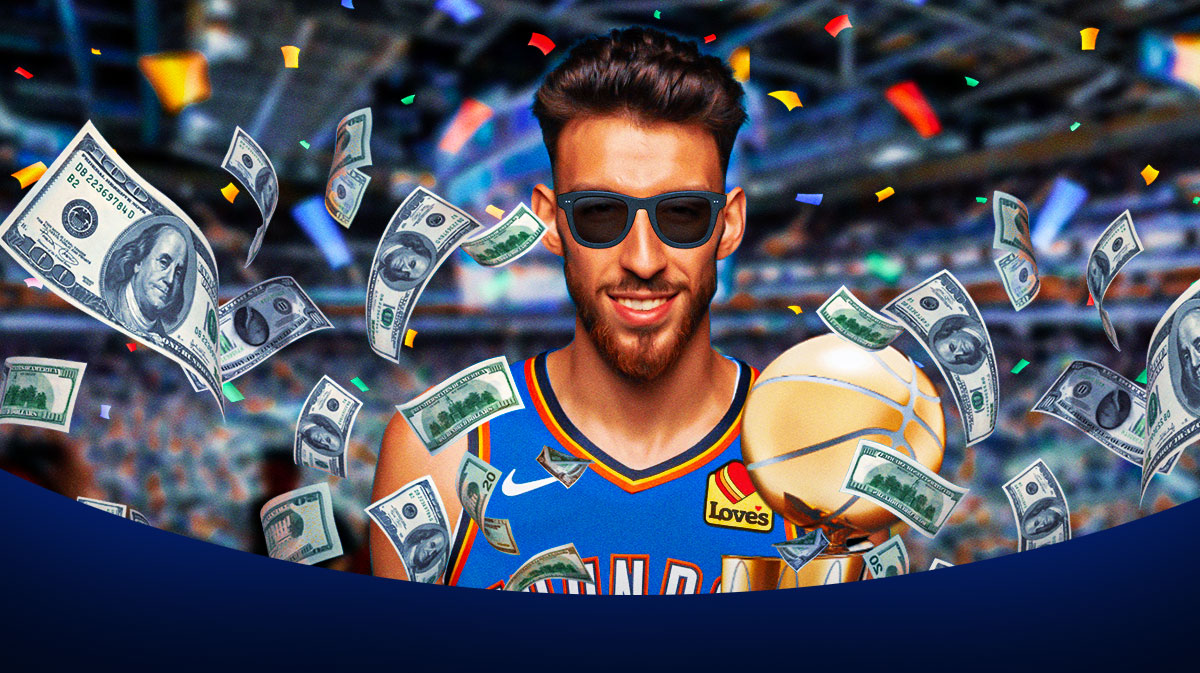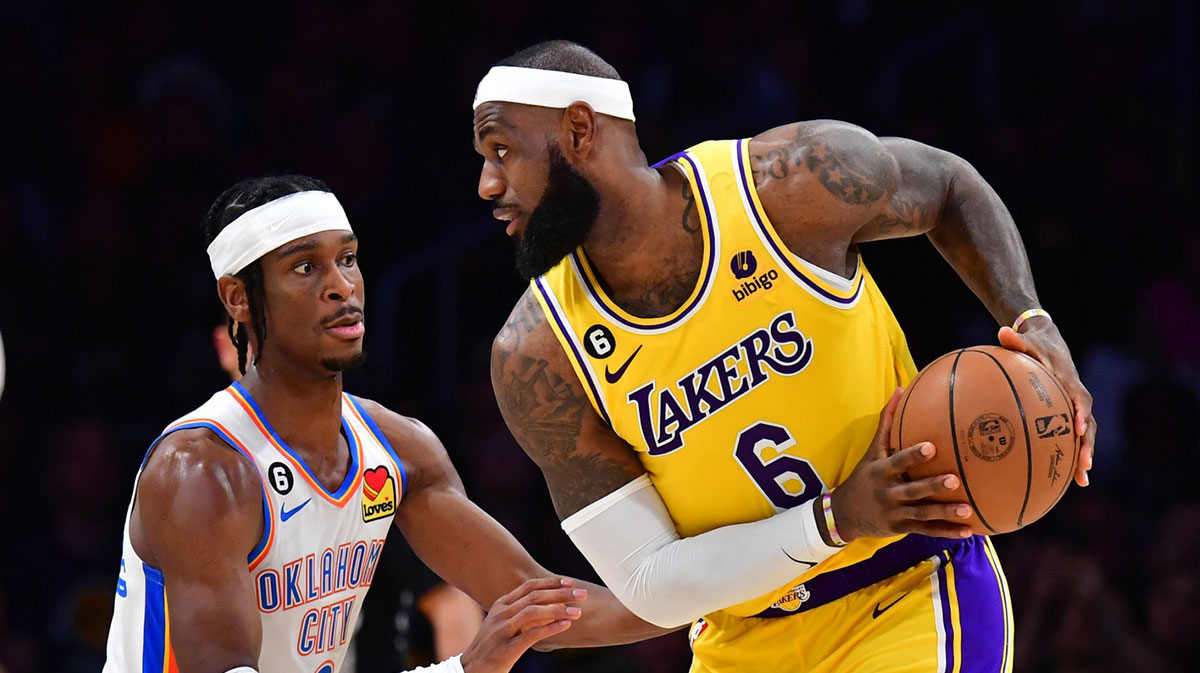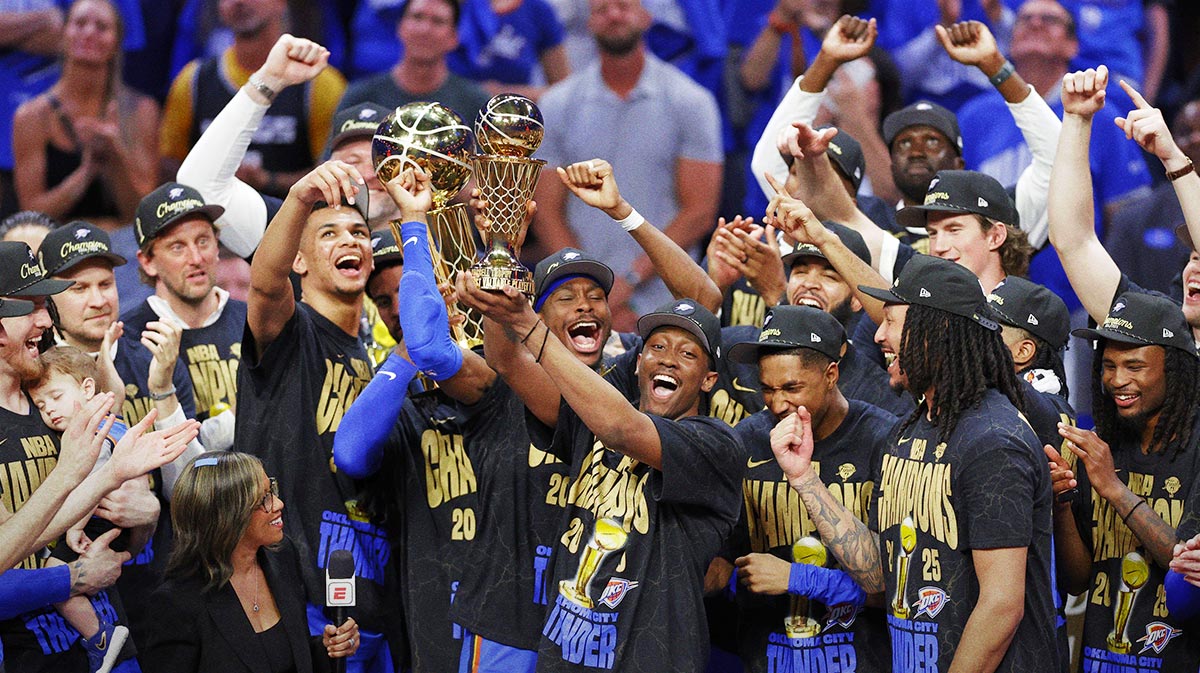Russell Westbrook has made more headlines this offseason by his peculiar use of his “next question” phrase in postgame press conferences. Now, this is not news to anyone who has followed the Oklahoma City Thunder in the last few seasons, knowing the long-storied tiff the All-Star guard has had with Berry Tramel, a sports columnist for The Oklahoman. But it has come to relevance due to the spotlight of the NBA Playoffs and the Thunder's first-round matchup with the Portland Trail Blazers.
Westbrook has become a poster child for avoiding questions from the media, but doing so at this stage leaves a sour taste, especially when pre- and postgame insight is so vital to the league's fan-friendly atmosphere that has made it such a social media darling throughout Adam Silver's reign as NBA commissioner.
Some have even urged that it's time for Silver or NBA Vice President of Basketball Operations Kiki VanDeWeghe to step in and put a stop to the nonsense, for the sake of the league's image:
It's beyond time for the NBA to stop this or start issuing fines. https://t.co/wukvVAvnQj
— Brian Mahoney (@briancmahoney) April 20, 2019
It's tough to know if a $15,000 fine would be enough for Westbrook to swallow his pride and answer one of Tramel's questions. After all, a fine would be loose change compared to the $35.7 million he's making this season or the $206.8 million he's owed until the end of his supermax contract with the Thunder.
Yet to understand Westbrook's beef with Tramel requires some revisionist's history — tracking back to when Westbrook first started to deny the columnist answers to his questions.
Tramel penned an editorial in which he addressed the situation, noting Westbrook has tried to rewrite the narrative around him by simply keeping his teammates from answering the questions, much like he does:
“That’s the seed of Westbrook’s frustration with me in particular and the media in general. Control,” wrote Tremel. “He is frustrated that the media is out of his control. That was manifested during the 2017 playoffs, when he intercepted my question to Steven Adams about why the Thunder collapsed so much during the minutes when Westbrook sat. Westbrook wouldn’t allow Adams to answer; he tried to commandeer the press conference and basically succeeded, despite my repeated attempts to point out that I wasn’t asking Westbrook, I was asking Adams.”
The infamous question that started it all can be seen in the clip below for further context, the first in an endless list of a “next question” highlight reel:
https://www.youtube.com/watch?v=cNFiH-HupW8
It also serves to understand the nature of Tramel's job — he is a columnist — and while he fills in every now and then, he is not a beat writer like colleague Erik Horne and others like ESPN's Royce Young and former news-desk mate Brett Dawson, now of The Athletic. Tramel's job is comprised of analyzing the game and the team's merits and culpability, rather than compiling game-to-game stories with the occasional feature, which is what the beat writer job entails.
Under Westbrook's implied line of thought: If Berry doesn't get an answer to his question, then he can't build a narrative for his column — a media version of not letting your opponent get the ball, so he won't score on you.
Yet instead of getting in a defensive stance to stop his adversary, the 2017 NBA MVP has resorted to fouling his way out of the game altogether — a tactic no other NBA player is using in their media availability or press conference settings.
In actuality, anyone who is at the press conference is free to use comments from it, no matter who the answer was given to. Westbrook adapted his game, and now hardly ever gives thought-provoking answers to the media altogether, but rather short and petulant responses.
Unless it's in front of a national stage, like for ESPN's or TNT's sideline reporters, Westbrook isn't the type to treat the media courteously, rather making it very obvious that it is an obligation he's merely tolerating for the sake of his job.
As Tramel puts it, Westbrook's problem isn't solely with him, though he has gotten the shortest end of the stick:
“The idea that Westbrook has some personal issue with me is misguided. That’s not true,” wrote Tramel. “Westbrook’s issue is with media in general.
“I don’t know from where his original distrust came, but I know he’s allowed it to fester over the years, with no guidance from Thunder officials. It’s too late – far too late – to do anything about it now. But Westbrook has been disrespectful to the Oklahoma City media going back almost a decade. And the OKC media has not been disrespectful back. Westbrook has been treated well by the people who cover the Thunder, both in personal deportment and in the content they produce.”
In short, Westbrook is very much worried about his image and as long as it doesn't fall into the 2.5 hours of a game broadcast, he has no business entertaining reporters or their questions, even if their livelihood depends on it.
Others have felt that neither Tramel nor any other reporter have crossed the line to ask Westbrook something beyond his capabilities:
These are softball questions after a win… not looking for a crazy headline.
— Dan (@dan4syth9876) April 20, 2019
The plague has now spread to Westbrook's teammates. A prime example was Paul George after a Game 3 win:
It’s spreading pic.twitter.com/N0Mp6Zz4Kh
— Maddie Lee (@maddie_m_lee) April 20, 2019
Other reporters have grown concerned about this, given Westbrook's importance in this series and his perceived lack of interest in responding to questions. Fans have grown frustrated that other reporters haven't stood up for Tramel to re-ask his questions, further letting the OKC guard bully them into silence.
In fact, many have drawn parallels to Westbrook's refusal to answer questions to President Donald Trump, who refused to answer questions from CNN chief White House correspondent Jim Acosta, who was unjustly banned and later reinstated among his peers.
Bush league is the reporters who don’t stand up for Barry and reask his questions to Westbrook, demanding an answer. Journalists should stand up for journalists, just like they did for @Acosta
— Vic Viken Karapetian (@vkarapetian) April 20, 2019
Westbrook's Trump-ish ways have indeed been manifested beyond Oklahoma City now, garnering attention at the national stage and going way beyond than the 45th-largest market in the country, but to every home interested in his postgame comments.
Erik Horne, the Thunder beat writer for The Oklahoman, praised his colleague and also offered some insight as to how he perceives covering Westbrook:
“Berry Tramel is stronger than most of us,” Horne tweeted as a follow-up to Berry's editorial, titled Why I keep asking Russell Westbrook questions. “I believe that Berry Tramel is correct when he says Westbrook doesn't have anything personal against him. Westbrook goes through this with about a handful of the OKC media a few times a year, though not in the manner of “next question.” It's usually just 4-5 word answers or less.”
Horne later brought to light how it feels to be put into “timeout” by Westbrook, a childish gambit he has now put in play with several in the OKC media:
“The way it goes: We may ask a question about something specific (free throws, shot selection, thought process or timing on a bad shot). Westbrook shoots it down (which is fine). We ask for clarification or someone else tries to ask for clarification (which also is fine).
So, then Westbrook becomes frustrated with the notion of the question being asked twice or in a manner in which he doesn't like. These questions aren't unreasonable, just not to his liking, and frankly don't get asked nearly as much as they would in other places.
What happens is you have to figure out how to approach it next, and we all do differently. There's no set understanding of how to approach Westbrook about a personal issue because there's never been any true rapport established between him and anyone in the press corps here.”
When the question of “why aren't more reporters backing up Berry Tramel?” comes up, it is because of the very reason Horne pointed out. No one is exempt from ruthlessly being put in timeout, and journalists often fear this fissure in a relationship with Westbrook, because that would mean coming back to their newspaper/online publication empty-handed and likely full of four- or five-word responses with a side of PR salad.
Reporters do feel for Tramel, a former beat writer and sports editor who has been with The Oklahoman since 1991, much longer than Westbrook has played organized basketball. But standing up for him could potentially risk ending up on the All-Star's s**t list for days, weeks; or in Tramel's case, years to come.
Adam Silver was already forced to step in when DeMarcus Cousins had a very public tiff with Andy Furillo, a longtime columnist from the The Sacramento Bee. The Kings were forced to fine Cousins for a locker room spat with Furillo after Silver's advice to put an end to the altercation between them.
In the same way, it is in Silver's power as the autonomous figure of the NBA governing body to put a plan in place keeping players from this sort of hostile interactions with reporters.
Some have taken Westbrook's side, dating back to a 2014 front-page headline that read “Mr. Unreliable,” which criticized Kevin Durant's free-throw shooting in the clutch, which could have cost them a first-round playoff series, which they ultimately survived against the Memphis Grizzlies. The newspaper apologized for the harsh nature of the headline the day after, due to readers' reactions, but Westbrook wasn't done berating the paper:
“A week ago you're calling him MVP and now you're calling him Mr. Unreliable,” Russell Westbrook said. “That doesn't make no sense to me.”
Others like Steve Kerr have called Westbrook's antics “unhealthy” for the league, while Hall of Famer and TNT analyst Charles Barkley called it “unprofessional” and pointed out that the OKC guard must be a pro and do what is part of his job.
The Thunder have done little to entice a truce between Westbrook and Tramel, even after the longtime columnist reportedly asked the organization many years ago for an off-the-record sit-down with Westbrook to clear the air, one the journalist claims was not even broached with the star player.
Tramel, meanwhile, has done his part, being relentless in his conviction and doing his job with respect to his affiliation, not giving Westbrook a free pass just because he feels a certain way about him:
“Giving in to Westbrook’s “next question” by going quiet in the Thunder locker room just empowers Westbrook to see how much more he can get away with,” wrote Tremel. “Standing up to his intimidation doesn’t really change anything – the guy is too mentally tough to surrender; he’s not giving in – but it keeps him from encroaching even more on the already tepid media/Thunder relationship.”
Commissioner Adam Silver was present for the Blazers' Game 4 win over the Thunder, which brought some speculation as to why Westbrook went away from his usual “next question” and replied slightly differently to Tramel after the game, giving him a half-hearted answer instead:
Russell Westbrook didn't go with "next question" tonight.
"uhhhhh…. that's a good question. Uhhhh…. not sure" pic.twitter.com/tke28GThSw
— Def Pen Hoops (@DefPenHoops) April 22, 2019
Truth be told, no one is expecting the mercurial guard to offer top-level insight on his play. But some level of courtesy and willingness to answer the media shouldn't be an act of grace, but one star players of his caliber welcome, as most others do.
Now the question is, will Silver take the leap and put a stop to this? Or will Westbrook continue to embarrass not only his team, but the thousands of Oklahoma City residents and millions of Thunder fans who are often deprived of proper answers?

